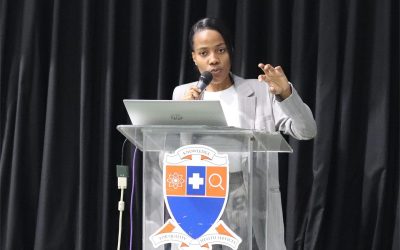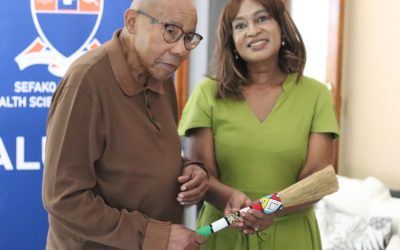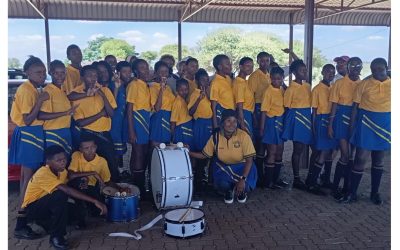Sefako Makgatho Health Sciences University (SMU) has taken a decisive step in tackling campus insecurity and gender-based violence (GBV) with the launch of the Campus Community Safety Forum (CCSF). The two-day Safety Engagement, held on 1–2 October 2025 in partnership with the South African Police Service (SAPS), the Department of Higher Education and Training (DHET), civil society organisations and health providers, sent a clear message: safety and dignity on campus are non-negotiable.
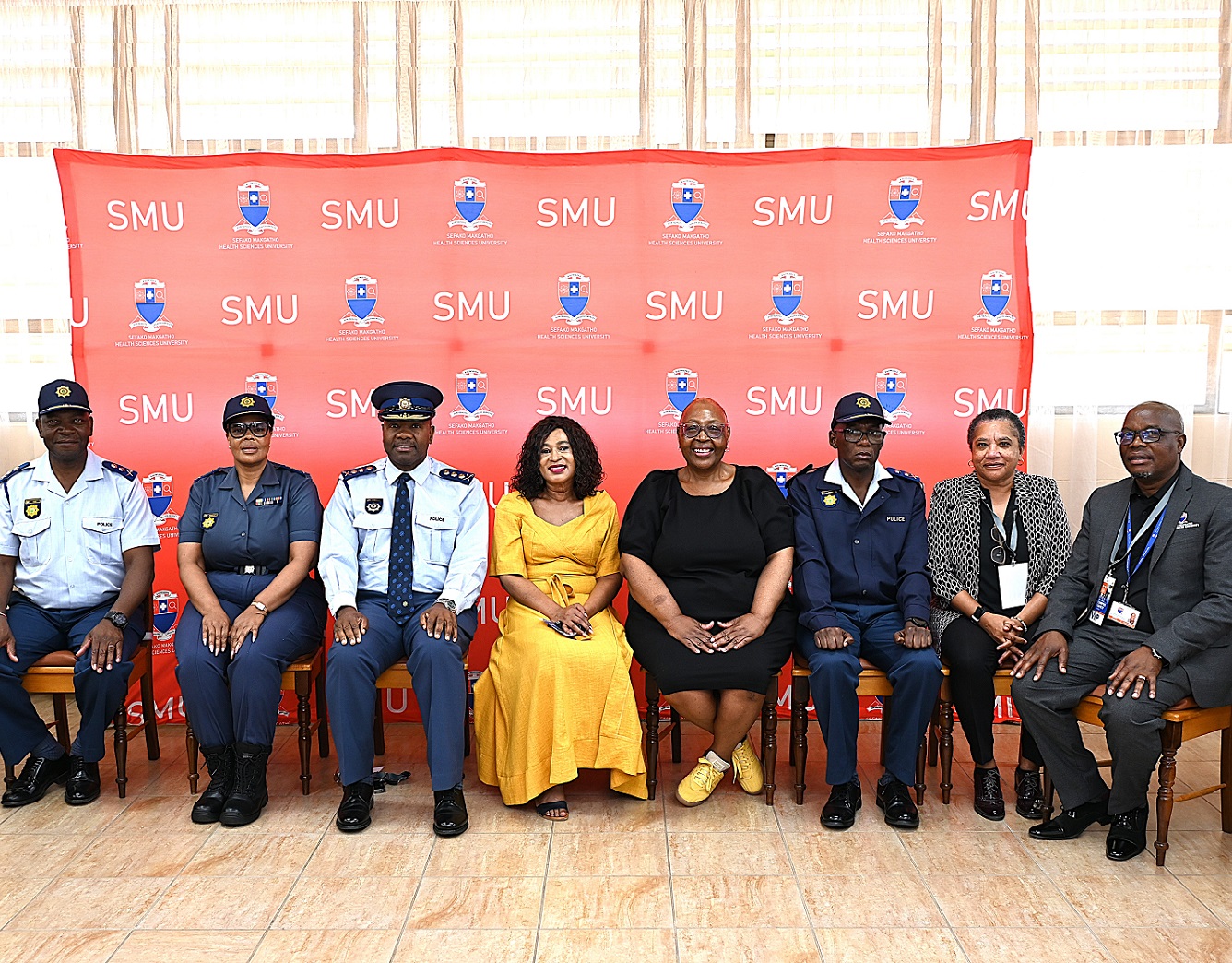 The programme was both urgent and collaborative. Day One centred on campus safety discussions, while Day Two marked the official establishment of the CCSF. Senior SAPS officials, university leadership, government representatives and students joined forces to strengthen coordinated action against GBV and crime.
The programme was both urgent and collaborative. Day One centred on campus safety discussions, while Day Two marked the official establishment of the CCSF. Senior SAPS officials, university leadership, government representatives and students joined forces to strengthen coordinated action against GBV and crime.
Key highlights included:
- A framework for campus safety and security
- Focus sessions on GBV, law and justice
- Survivor-centred dialogues on support and safe reporting
- Direct engagements with SAPS and DHET
- Drafting of the CCSF’s terms of reference
The CCSF was conceived not as a symbolic structure, but as a practical platform to identify risks, address security concerns and build confidence in campus protection systems – with students placed firmly at the centre of decision-making.
Day Two began with opening remarks from SMU’s Acting Deputy Vice-Chancellor for Operations, Odette Ramsingh: “Our academic project is key to the vision and mission of SMU. We remain resolute in our drive towards academic excellence and leading healthcare solutions that will benefit our families, communities and South Africa. Therefore, safety is a core enabler of teaching, research and student success. We cannot pursue excellence in a culture of harassment, fear and intimidation, and most especially not in violence.”
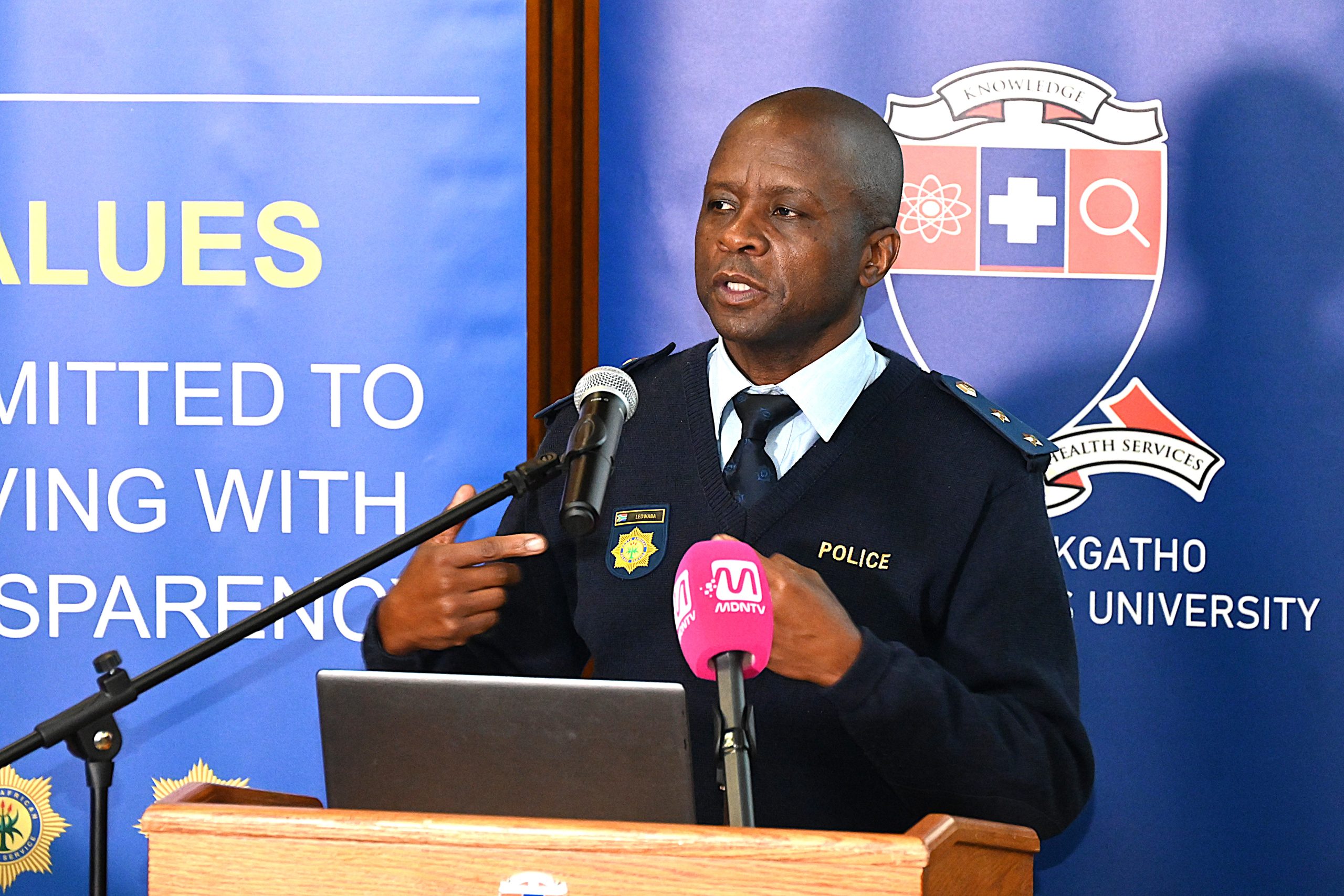 This was followed by an address from Vice-Chancellor, Professor Tandi Matsha-Erasmus, who stated: “This gathering is not ceremonial; it is a declaration. A declaration that SMU will remain unwavering in its resolve to create a campus where safety is not a privilege, but a promise. Let this forum not end with speeches, but with sustained action. Every theft prevented, every assault reported, every survivor supported is a victory for the values we hold dear.”
This was followed by an address from Vice-Chancellor, Professor Tandi Matsha-Erasmus, who stated: “This gathering is not ceremonial; it is a declaration. A declaration that SMU will remain unwavering in its resolve to create a campus where safety is not a privilege, but a promise. Let this forum not end with speeches, but with sustained action. Every theft prevented, every assault reported, every survivor supported is a victory for the values we hold dear.”
Messages of support from DHET, the Community Policing Forum, the Student Representatives and youth crime prevention structures reinforced a united front against GBV. The defining moment came when SAPS leaders joined SMU officials in signing the CCSF pledge, formally affirming their collective commitment. Gauteng Provincial Commissioner of Police, Lieutenant General Tommy Mthombeni, underscored the role of community forums and technology in addressing campus crime, highlighting the use of surveillance systems and the Gauteng e-panic button app.
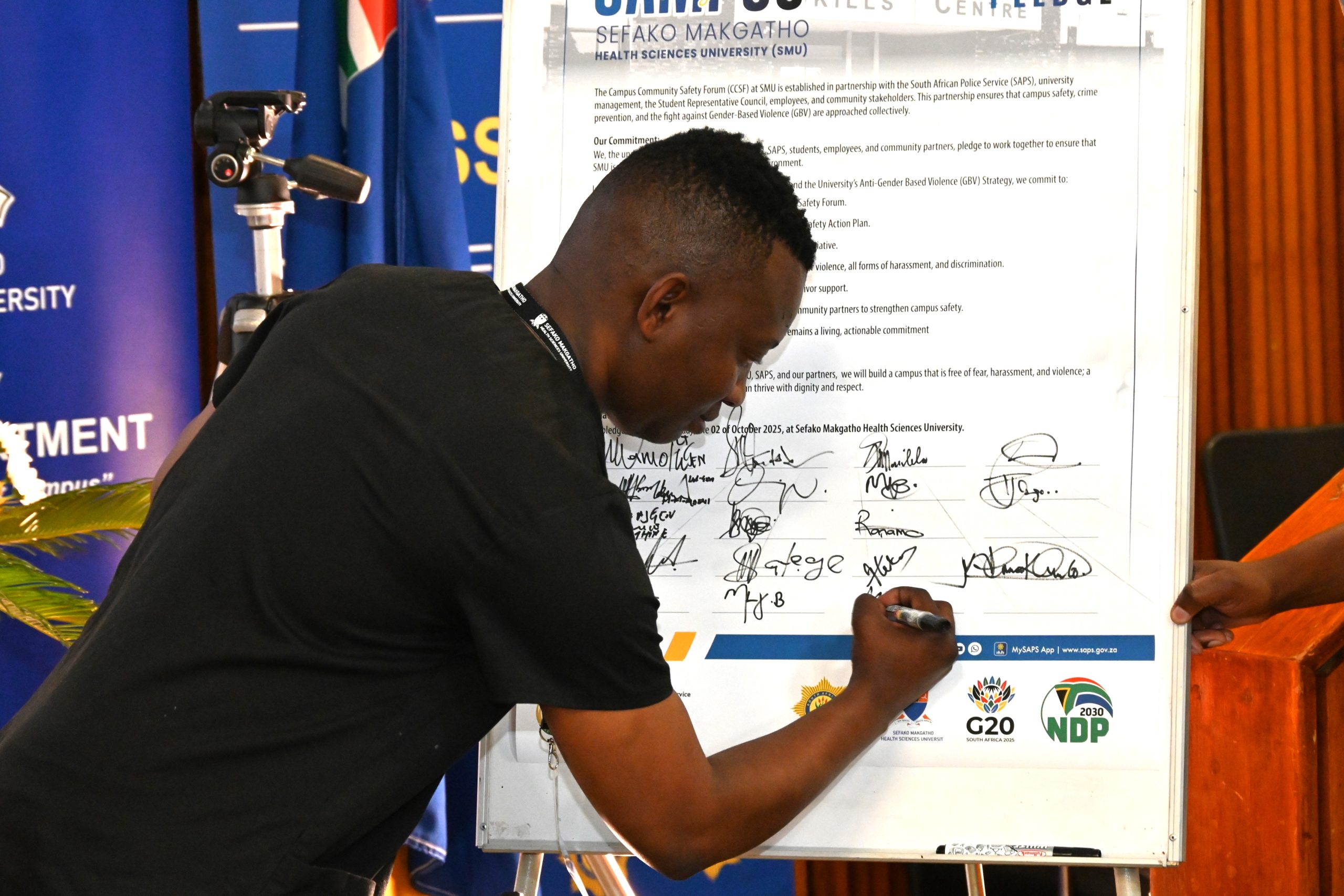 Student leadership also emphasised the urgency of the initiative. Outgoing SRC President, Katlego Moshanyane, reflected: “I am honoured to have participated in this launch, which prioritises student well-being and focuses sharply on eradicating GBV. This ensures SMU remains a safe environment for both students and staff.”
Student leadership also emphasised the urgency of the initiative. Outgoing SRC President, Katlego Moshanyane, reflected: “I am honoured to have participated in this launch, which prioritises student well-being and focuses sharply on eradicating GBV. This ensures SMU remains a safe environment for both students and staff.”
Organised labour endorsed the initiative with equal conviction. Dr Tshifhiwa Mulaudzi stated: “This vital initiative unites SAPS, staff and community leaders from Ga-Rankuwa to enhance campus security. Let us all participate fully to build a safer campus for everyone.”
At a time when South African universities face escalating security challenges, SMU has positioned itself as a leader in proactive, community-driven safety interventions. By combining law enforcement expertise, academic leadership, student voices and survivor support services, the CCSF is set to deliver lasting impact.
The campaign’s theme – “Safe Campus, Strong Voices – Together We Stop GBV” – captured the urgency and determination behind the initiative. Far from symbolic, the CCSF launch was a rallying call for sustained action, accountability, and a culture of safety built on shared responsibility.
By Tumelo Moila

